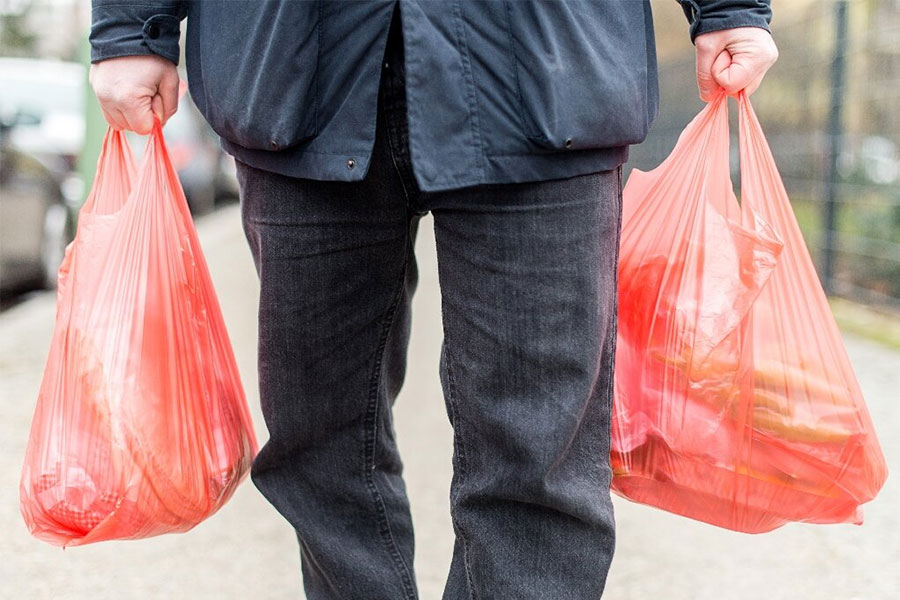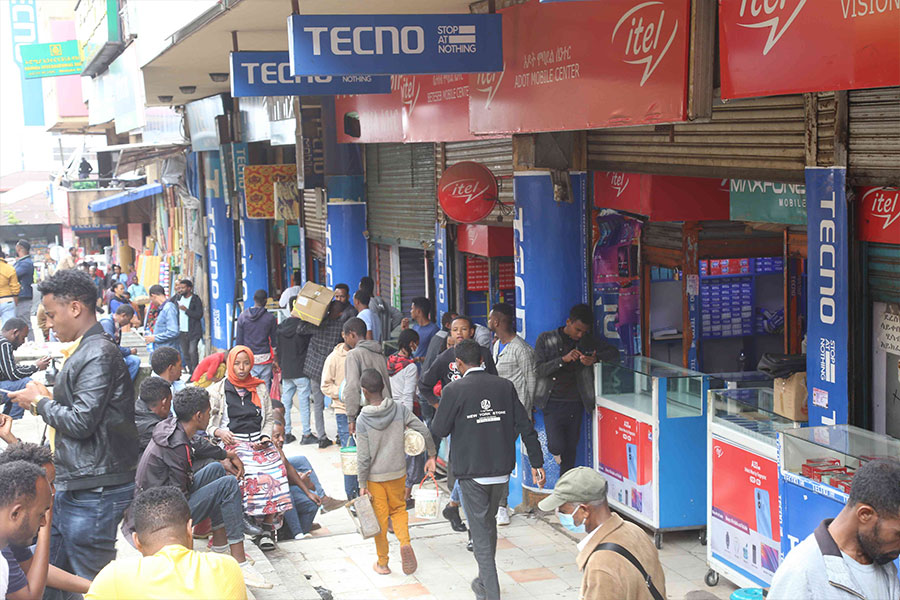
Jul 7 , 2024
By Sofia Ahmed , Teklemariam Awoke and Shiferaw Tafesse (PhD)
As Ethiopia struggles with feeding its growing population, the focus must extend beyond boosting agricultural productivity to include robust post-harvest management practices. The potential benefits are substantial; reducing post-harvest losses could not only alleviate food insecurity for millions but also enhance the country's economic stability and resilience, write Sofia Ahmed, country director of FOLU-Ethiopia; Teklemariam Awoke, expert for innovative financing (FOLU-Ethiopia), and Shiferaw Tafesse (PhD), project manager for regenerative agriculture transition project of FOLU-Ethiopia.
Ethiopia faces a pressing challenge in feeding a population projected to reach 205 million in the next 25 years. While increasing food production is necessary, the country can enormously boost its crop output and ensure food security by enhancing post-harvest management practices. Studies reveal that merely improving agricultural productivity will not suffice; reducing post-harvest losses is equally critical to increasing the volume and quality of available food.
Post-harvest losses in Ethiopia are staggering. Estimates suggest that major food and cash crop losses amount to over 1.2 billion dollars annually, equivalent to more than 25pc of the country’s export earnings. These losses range from 30pc to 40pc for cereals, fruits, and vegetables. The substantial waste could otherwise feed millions of food-insecure individuals. Hence, addressing this issue demands immediate and coordinated efforts within the food system.
The federal government has taken strategic measures to tackle post-harvest losses.
One notable initiative is a 10-year plan for perspective development ending in 2030, which targets drastically reducing these losses. Ethiopia’s long-term low-emissions development strategy, aspiring to create a climate-resilient economy by 2050, emphasises the need to reduce food waste in the agri-food sector. Recently, the government launched a comprehensive strategy for post-harvest management, encompassing grains, fruits, vegetables, livestock, and fish. Ensuring food and nutrition security and transforming food systems toward better sustainability, efficiency, and resilience is crucial.
Despite these strong political commitments, significant losses continue at various stages of the food supply chain. Post-harvest loss management has not received the same attention as food production from many stakeholders in the agriculture sector. Limited coordination and comprehensive efforts have led to a lack of recognition of its economic consequences and negative impact on food security efforts.
Several steps are necessary to reduce post-harvest losses effectively. One critical step is developing the capacity to measure critical loss points accurately. Various research and development organisations have devised diverse approaches to evaluate post-harvest losses, but there is a scarcity of data on food losses at different supply chain stages. More tailored and consistent approaches are needed to measure these losses. National and specific value chain reports require clarity and consistency. Thus, establishing comprehensive and standardised national post-harvest assessment tools and methodologies is paramount.
Key stakeholders in the agriculture sector need to understand the magnitude of the problem and prioritise creating awareness, improving access to post-harvest loss technologies, providing capacity-building programs for smallholder farmers and value chain actors on proper post-harvest handling, and investing in essential infrastructure.
To support ongoing efforts, the Food & Land Use Coalition (FOLU) Ethiopia has partnered with the Ministry of Agriculture (MoA) to develop a customised methodology for quantifying food loss and waste. Based on established food loss and waste approaches, this methodology incorporates insights from comparative analysis and identifies areas for improvement. The new methodology provides a comprehensive approach to measuring food losses throughout the supply chain, enabling the identification of critical loss points and the determination of causes and drivers. It also facilitates systematic prioritisation of intervention options to track and monitor progress effectively.
Following the development of this new methodology, FOLU Ethiopia has partnered with Sasakawa Africa Association (SAA) to initiate a project assessing post-harvest losses of avocados in the major producing regions. The project seeks to analyse the critical loss points in the post-harvest handling process throughout the value chain, measuring both physical and economic losses, and providing recommendations to minimise these losses. The initiative aims to enhance the crop’s impact on the livelihoods of individuals and the national economy.
The project will also raise stakeholders' awareness, knowledge, and skills about identified avocados post-harvest critical loss points, promoting better product handling and management practices. Expected to yield promising results, the project could offer valuable insights for national programs and projects addressing post-harvest loss issues.
Given the complexity and multidimensional nature of post-harvest loss, FOLU Ethiopia emphasises the need for coordinated action among stakeholders to address this issue effectively. Adopting a customised and standardised methodology will support the effective implementation of Ethiopia's newly launched post-harvest management strategy. By encouraging strong collaboration among various stakeholders, embracing relevant innovations, and increasing investment, Ethiopia can effectively address the intricate challenges posed by post-harvest loss.
PUBLISHED ON
Jul 07,2024 [ VOL
25 , NO
1262]

Fortune News | Jul 07,2024

Radar | Jun 07,2025

News Analysis | Jun 24,2023

Agenda | Aug 14,2022

Viewpoints | Jun 03,2023

Fortune News | Aug 04,2024

Viewpoints | Sep 03,2022

Fortune News | Apr 22,2023

Radar | Jan 19,2024

Life Matters | Oct 10,2020

My Opinion | 131548 Views | Aug 14,2021

My Opinion | 127903 Views | Aug 21,2021

My Opinion | 125879 Views | Sep 10,2021

My Opinion | 123510 Views | Aug 07,2021

Dec 22 , 2024 . By TIZITA SHEWAFERAW
Charged with transforming colossal state-owned enterprises into modern and competitiv...

Aug 18 , 2024 . By AKSAH ITALO
Although predictable Yonas Zerihun's job in the ride-hailing service is not immune to...

Jul 28 , 2024 . By TIZITA SHEWAFERAW
Unhabitual, perhaps too many, Samuel Gebreyohannes, 38, used to occasionally enjoy a couple of beers at breakfast. However, he recently swit...

Jul 13 , 2024 . By AKSAH ITALO
Investors who rely on tractors, trucks, and field vehicles for commuting, transporting commodities, and f...

Jun 28 , 2025
Meseret Damtie, the assertive auditor general, has never been shy about naming names...

Jun 21 , 2025
A well-worn adage says, “Budget is not destiny, but it is direction.” Examining t...

Jun 14 , 2025
Yet again, the Horn of Africa is bracing for trouble. A region already frayed by wars...

Jun 7 , 2025
Few promises shine brighter in Addis Abeba than the pledge of a roof for every family...

Jun 29 , 2025
Addis Abeba's first rains have coincided with a sweeping rise in private school tuition, prompting the city's education...

Jun 29 , 2025 . By BEZAWIT HULUAGER
Central Bank Governor Mamo Mihretu claimed a bold reconfiguration of monetary policy...

Jun 29 , 2025 . By BEZAWIT HULUAGER
The federal government is betting on a sweeping overhaul of the driver licensing regi...

Jun 29 , 2025 . By NAHOM AYELE
Gadaa Bank has listed 1.2 million shares on the Ethiopian Securities Exchange (ESX),...